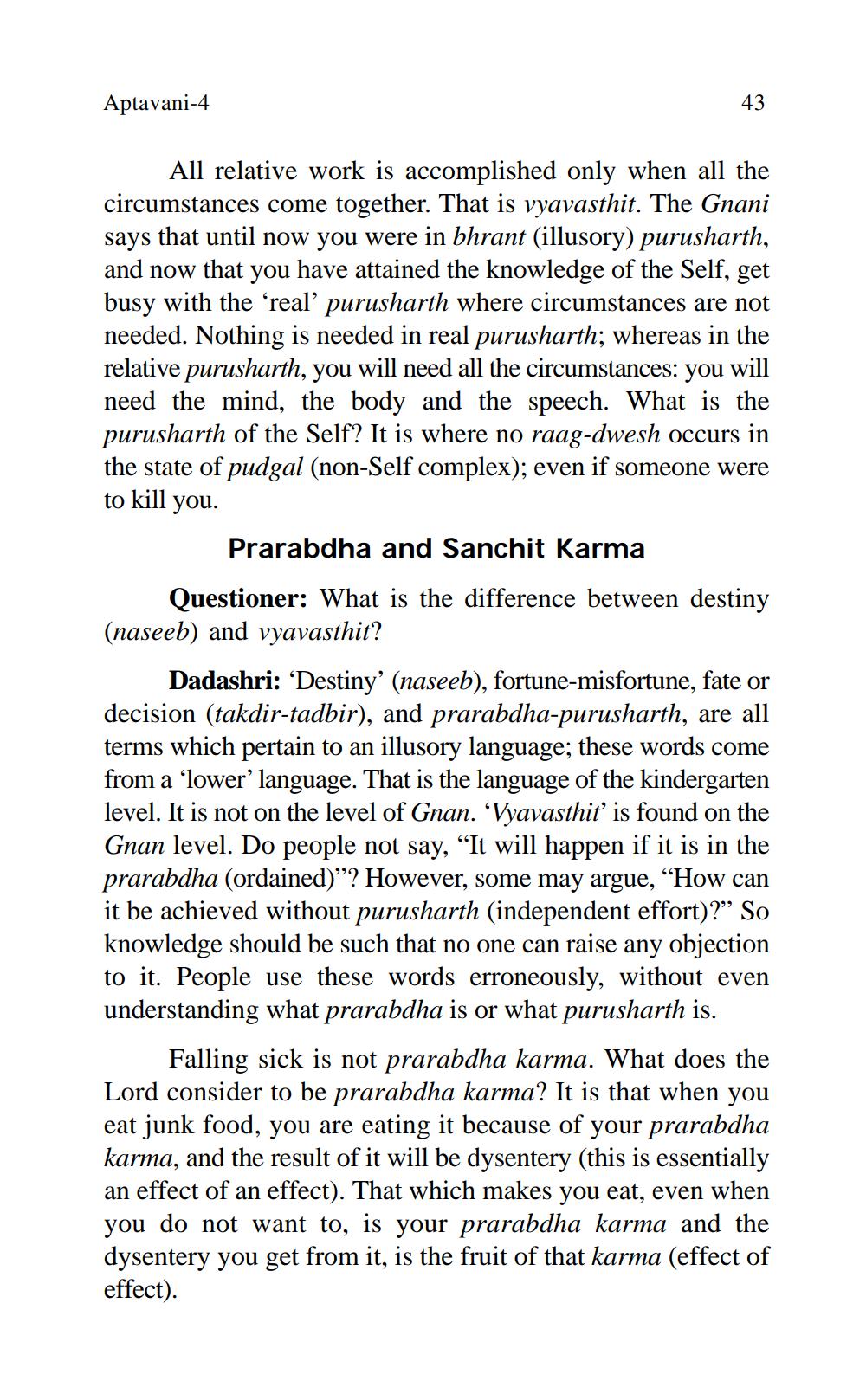________________
Aptavani-4
43
All relative work is accomplished only when all the circumstances come together. That is vyavasthit. The Gnani says that until now you were in bhrant (illusory) purusharth, and now that you have attained the knowledge of the Self, get busy with the 'real' purusharth where circumstances are not needed. Nothing is needed in real purusharth; whereas in the relative purusharth, you will need all the circumstances: you will need the mind, the body and the speech. What is the purusharth of the Self? It is where no raag-dwesh occurs in the state of pudgal (non-Self complex); even if someone were to kill you.
Prarabdha and Sanchit Karma
Questioner: What is the difference between destiny (naseeb) and vyavasthit?
Dadashri: 'Destiny' (naseeb), fortune-misfortune, fate or decision (takdir-tadbir), and prarabdha-purusharth, are all terms which pertain to an illusory language; these words come from a 'lower' language. That is the language of the kindergarten level. It is not on the level of Gnan. 'Vyavasthit' is found on the Gnan level. Do people not say, "It will happen if it is in the prarabdha (ordained)"? However, some may argue, “How can it be achieved without purusharth (independent effort)?" So knowledge should be such that no one can raise any objection to it. People use these words erroneously, without even understanding what prarabdha is or what purusharth is.
Falling sick is not prarabdha karma. What does the Lord consider to be prarabdha karma? It is that when you eat junk food, you are eating it because of your prarabdha karma, and the result of it will be dysentery (this is essentially an effect of an effect). That which makes you eat, even when you do not want to, is your prarabdha karma and the dysentery you get from it, is the fruit of that karma (effect of effect).




